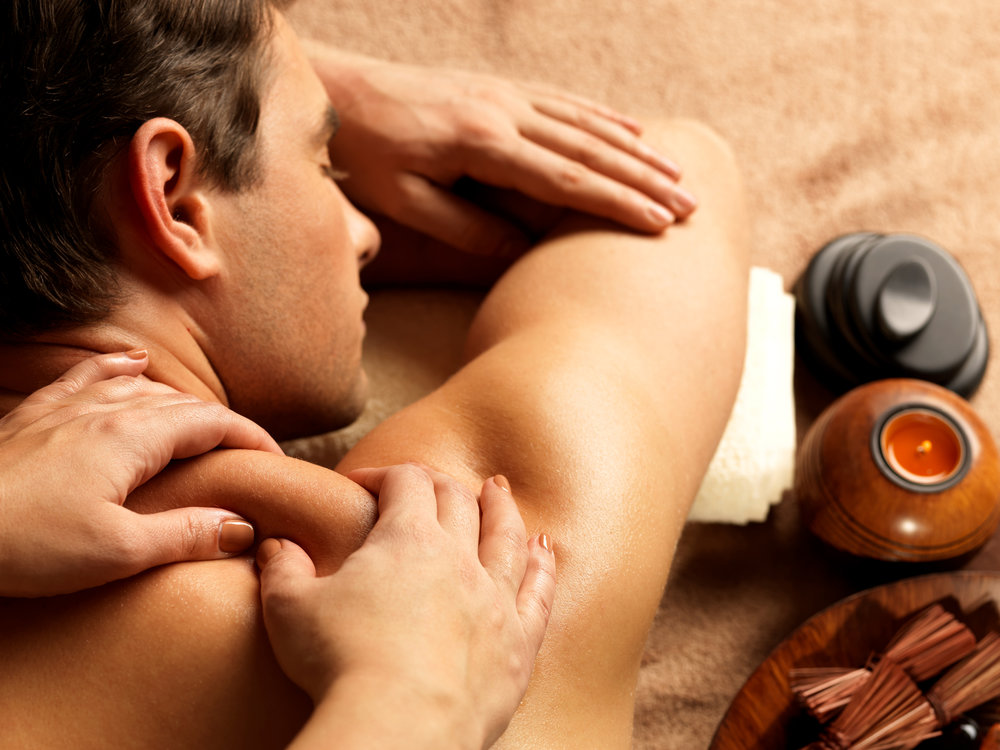Introduction
In today’s fast-paced world, where stress and tension have become a part of daily life, taking care of your physical and mental well-being is crucial. One effective way to unwind and rejuvenate is by indulging in a great massage. Massages offer a myriad of benefits, from relaxation to pain relief, and can significantly improve your overall health and well-being. In this article, we will explore the wonders of a great massage, understanding its benefits, types, finding a qualified therapist, and much more.
Understanding Massage
Massage is an ancient practice that involves manipulating the body’s soft tissues to promote relaxation, relieve tension, and improve overall health. Skilled massage therapists use their hands, fingers, elbows, and sometimes even specialized tools to apply varying levels of pressure on specific areas of the body. The therapeutic touch of a massage can stimulates blood flow, reduce muscle tension, and release endorphins, resulting in a profound sense of well-being.
Types of Massage
There are numerous types of massages, each with its own unique benefits. Let’s explore some popular ones:
- Swedish Massage: A gentle and relaxing massage that uses long, sweeping strokes to improve circulation and induce deep relaxation.
- Deep Tissue Massage: A more intense massage that targets deeper layers of muscle and connective tissue, providing relief from chronic muscle pain and tension.
- Sports Massage: Geared towards athletes and active individuals, this massage focuses on preventing and treating sports-related injuries, enhancing performance, and promoting faster recovery.
- Hot Stone Massage: Involves placing heated stones on specific points of the body to alleviate muscle tension, reduce stress, and enhance relaxation.
- Thai Massage: A unique blend of stretching, acupressure, and yoga-like movements that helps improve flexibility, relieve muscle tension, and increase energy levels.
Choosing a massage technique that aligns with your specific needs and preferences is important. Consulting with a qualified massage therapist can help you determine the most suitable option for you.
Finding a Massage Therapist
When seeking a massage therapist, finding a qualified professional who understands your needs and can provide a safe and effective massage experience is crucial. Consider the following tips:
- Research and Recommendations: Seek recommendations from friends, family, or healthcare professionals. Additionally, read online reviews and check credentials and certifications of potential massage therapists.
- Communication and Comfort: Prioritize open communication with your therapist. Discuss your goals, concerns, and any health conditions or injuries you have. A good therapist will customize the massage to address your specific needs.
- Experience and Specializations: Inquire about the therapist’s experience and any specialized training they have undergone. Some therapists specialize in areas such as prenatal massage, sports massage, or chronic pain management.
Benefits of a Great Massage
A great massage offers a multitude of benefits, both for the body and mind. Let’s delve into some of these remarkable advantages:
-
Pain Relief and Stress Reduction
One of the primary reasons people seek massages is to find relief from pain and reduce stress. Massage therapy can alleviate muscle tension, reduce inflammation, and trigger the release of endorphins, which are natural painkillers. Regular massages can help manage chronic pain conditions like arthritis, migraines, and back pain and alleviate stress and anxiety.
-
Improved Blood Circulation
Massage stimulates blood circulation, enhancing the flow of oxygen and nutrients to the body’s tissues. The gentle pressure applied during a massage helps dilate blood vessels, promoting better circulation and assisting in the removal of toxins and metabolic waste from the body. Improved blood circulation can positively impact various bodily functions, including cell regeneration and organ health.
-
Enhanced Relaxation and Sleep
A great massage can induce deep relaxation, calming both the body and mind. The rhythmic strokes and gentle pressure release tension, lower heart rate, and activate the parasympathetic nervous system, leading to a state of profound relaxation. This, in turn, can significantly improve sleep quality, helping individuals achieve a more restful and rejuvenating night’s sleep.
-
Boosted Immune System
Regular massages have been shown to affect the immune system positively. Massages’ relaxation and stress reduction help decrease the production of stress hormones like cortisol, which can suppress immune function. By reducing stress levels, massages can support a stronger immune system, making you less susceptible to illnesses and infections.
-
Improved Flexibility and Range of Motion
Massage therapy can work wonders for individuals looking to enhance their flexibility and range of motion. By targeting muscles, tendons, and connective tissues, massages help release tension and increase joint mobility. This can be particularly beneficial for athletes, dancers, or anyone looking to improve their physical performance and prevent injuries.
-
Rehabilitation and Injury Recovery
Massages can play a significant role in the healing process for individuals recovering from injuries or undergoing rehabilitation. Massage therapy can help reduce pain, inflammation, and muscle stiffness, promoting faster recovery and improved mobility. It’s important to consult with your healthcare provider or physical therapist to determine the appropriate type and frequency of massages during your recovery journey.
-
Mental Health Benefits
In addition to physical benefits, massages profoundly impact mental well-being. The soothing touch of a massage can reduce anxiety, depression, and symptoms of stress-related disorders. Massages can also promote a sense of emotional balance, increased self-awareness, and improved overall mood.
Precautions and Considerations
While massages offer numerous benefits, certain precautions should be taken into account:
- Medical Conditions: If you have any underlying medical conditions or are pregnant, consult with your healthcare provider before getting a massage. They can provide guidance on the most appropriate techniques and ensure your safety.
- Allergies and Sensitivities: Inform your massage therapist about any allergies or sensitivities you have to ensure they use suitable products and oils during the massage.
- Communication: Throughout the massage, communicate openly with your therapist. Provide feedback regarding pressure, comfort, and any discomfort you may experience. This will help them adjust the massage to your liking and address any concerns promptly.
Frequently Asked Questions
How often should I get a massage?
The frequency of massages depends on your specific needs and goals. For general well-being, scheduling a massage once a month can be beneficial. However, individuals with chronic pain or high stress levels may benefit from more frequent sessions.
Can I get a massage if I’m pregnant?
Yes, prenatal massages can be safe and beneficial during pregnancy. However, it’s essential to consult with your healthcare provider and find a massage therapist trained in prenatal massage techniques.
Will a massage be painful?
Messages should not be painful. However, certain techniques, such as deep tissue massage, may involve some discomfort. Communicate your preferences and pain tolerance to your therapist, who can adjust the pressure accordingly.
How long does a typical massage session last?
Massage sessions typically last between 60 to 90 minutes. However, shorter or longer sessions can be arranged based on your preferences and availability.
Can massages help with migraines?
Yes, massages can provide relief from migraines by reducing muscle tension and promoting relaxation. Consult a qualified massage therapist to discuss techniques that may help alleviate migraines.
A great massage offers a multitude of benefits for your body and mind. From pain relief and stress reduction to improved blood circulation and enhanced flexibility, massage therapy has the power to transform your well-being. Take the time to find a qualified therapist, communicate your needs, and experience the profound effects of therapeutic touch. Treat yourself to a great massage and embark on a journey of relaxation, rejuvenation, and improved overall health.
FAQs
Q1. How often should I get a massage?
The frequency of massages depends on your specific needs and goals. For general well-being, scheduling a massage once a month can be beneficial. However, individuals with chronic pain or high stress levels may benefit from more frequent sessions.
Q2. Can I get a massage if I’m pregnant?
Yes, prenatal massages can be safe and beneficial during pregnancy. However, it’s essential to consult with your healthcare provider and find a massage therapist trained in prenatal massage techniques.
Q3. Will a massage be painful?
Messages should not be painful. However, certain techniques, such as deep tissue massage, may involve some discomfort. Communicate your preferences and pain tolerance to your therapist, who can adjust the pressure accordingly.
Q4. How long does a typical massage session last?
Massage sessions typically last between 60 to 90 minutes. However, shorter or longer sessions can be arranged based on your preferences and availability.
Q5. Can massages help with migraines?
Yes, massages can provide relief from migraines by reducing muscle tension and promoting relaxation. Consult a qualified massage therapist to discuss techniques that may help alleviate migraines.


Excellent post! It’s evident that you are passionate about this topic and that passion shines through in your writing. Your clear, concise explanations helped me to understand this complex issue much more easily.
https://clients1.google.rw/url?q=https%3A%2F%2Fvegasgirlsgonewild.com
Your post was enlightening and full of invaluable insights. The depth of your knowledge and expertise is clearly evident in your writing. I appreciate the time and effort you’ve put into crafting this comprehensive and insightful piece.
https://clients1.google.rw/url?q=https%3A%2F%2Fjohnnyescorts.com